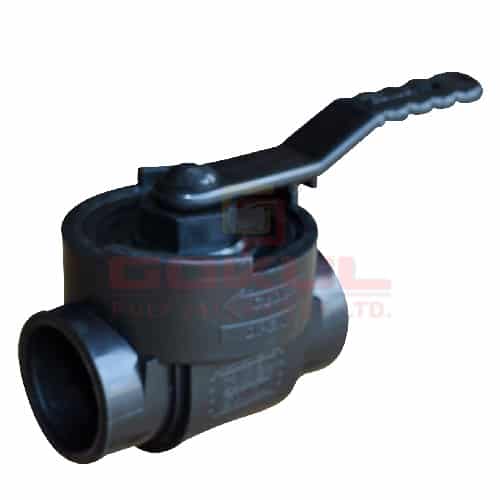Plastic ball valves, which are noted for their adaptability and affordability, are crucial parts of fluid control systems. These valves allow the flow of liquids or gases to be controlled by rotating a spherical closing mechanism inside a chamber that is controlled by a lever or handle. The resilience of plastic ball valves against corrosion and chemical assault is one of its main benefits, making them perfect for handling a variety of aggressive or corrosive fluids, including acids, alkalis, and different industrial chemicals. They are a popular choice for many applications, including home plumbing, industrial operations, and irrigation systems, due to their lightweight design and simplicity of installation. In corrosive settings, plastic ball valves frequently outlast metal valves in terms of toughness and longevity. Their slick internal surfaces minimize pressure loss and friction, guaranteeing effective fluid flow. All things considered, plastic ball valves provide a dependable and economical alternative for regulating fluid flow in a range of applications while withstanding harsh weather conditions.

TECHNICAL SPECIFICATION FOR PLASTIC BALL VALVE |
|
| Material Of Construction | Plastic |
| Design | Single Body moulded. |
| Max working temp | 50 c (consistently) |
| Connection End | Pvc Single piece screwend & Plain Ball Valve |
| Hydraulic Test Pressure | Body-100 PSI & SEAT-80PSI |
| Size Range | 25mm to 80mm |
| Standard | As per manufacture’s |

